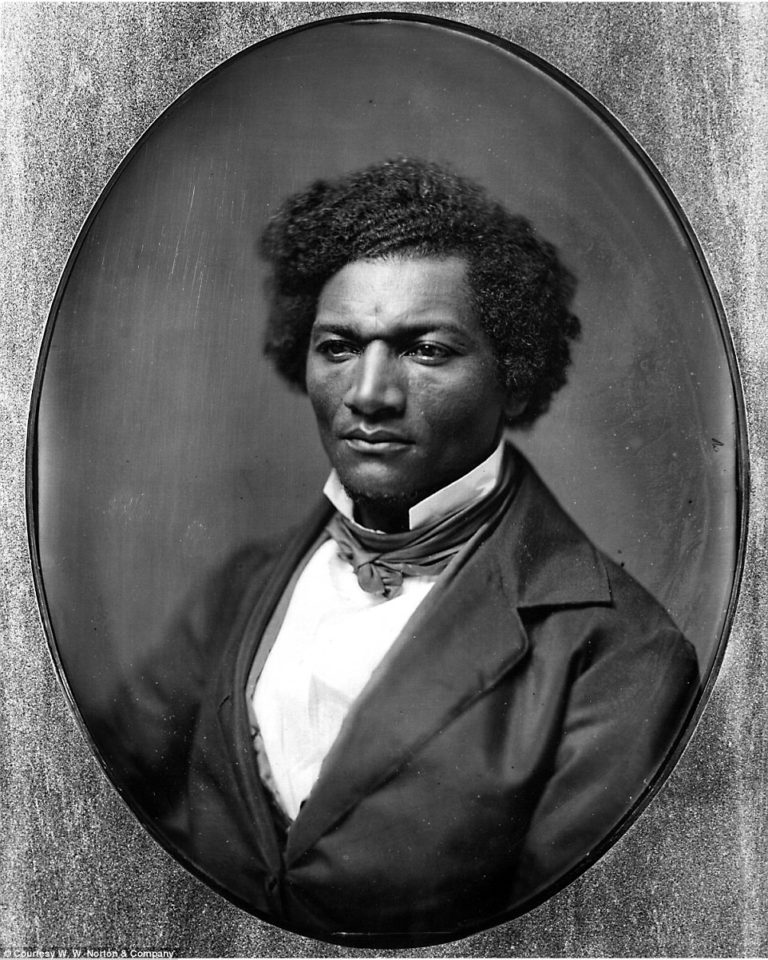This is a short introduction into the life of Frederick Augustus Washington Bailey, who later changed his last name to Douglass, after a famous poet. His journey to faith and what we can learn from his life and legacy.
Short biography
- Born in the year 1818 into slavery. His mother was of black and Native American ancestry and his father was “almost certainly white”, according to the biographer David Blight.
- Douglass was seperated from his mother, Harriet Bailey from a young age.
- He first lived with his maternal grandmother, then at the age of 6 moved to Baltimore to live with a couple, Lucretia and Thomas Auld. Then was sent to work for Thomas’ brother, Hugh.
- He was taught the alphabet by Sophia, Thomas’ sister-in-law, however Hugh did not want Frederick to learn, as it was forbidden to teach enslaved people to read or write.
- Nonetheless, Douglass continued to learn to read and write by trading food for books and lessons from white children. He would later teach other slaves to become literate. He believed knowledge was the path to freedom.
- As a result Thomas sent him to Edward Covey who was known for his harsh treatment of slaves.
- During his time with Covey, Federick was regualrly whipped and treated poorly. After a while the tensions arose until an altercation between him and Covey. They fought and Douglass won. This he recounts, was a life changing moment.
This battle with Mr. Covey was the turning-point in my career as a slave. It rekindled the few expiring embers of freedom, and revived within me a sense of my own manhood. It recalled the departed self-confidence, and inspired me again with a determination to be free
Frederick Douglass
- He escaped in 1838 dressed as a sailor with the help of a woman named Anna.
- Moved to New York and married the woman who helped him escape, Anna, a free-born African American woman and they had 5 children.
- Douglass was instrumental in the abolishment movement in America and social reform.
- In his lifetime, he would write three autobiographies and publish multiple writings.
- He advocated for womens rights, equality and human rights until his death in 1895.
Journey to Faith
The first interaction Frederick had with Christianity was listening to Sophia Alud read the book of Job one night. Douglass was interested in the story of the man, who even after going through such trials and tribulations to the point of losing everything, would still say “ Blessed be the name of the Lord”. He wanted to find out more about this man. Douglass joined a Methodist church where he was introduced to a Christ that was more than the pro-slavery gospel he had heard his whole life. After this, he continued to battle with the reality of his sin and the hope found in the Gospel. He fully converted to Christianity and found faith in Christ as “Redeemer, Friend and Saviour”.
Later as he worked in the field, he would see how other slaves were exposed to the false Christianity preached by the slave owners. He was one of the few slaves who actually received the true gospel from the Bible. He watched how the slave owners would treat the slaves poorly then attend church on Sundays.
We have men-stealers for ministers, women-whippers for missionaries, and cradle-plunderers for church members. The man who wields the blood-clotted cowskin during the week fills the pulpit on Sunday, and claims to be a minister of the meek and lowly Jesus. . . . Here we have religion and robbery the allies of each other—devils dressed in angels’ robes, and hell presenting the semblance of paradise.
Frederick Douglass
He condemned the hypocrisy, exclaiming, “Between the Christianity of this land, and the Christianity of Christ, I recognize the widest possible difference.” Frederick was determined to share about the gospel and Christianity of Christ he learnt, not the false one used.
There was a time where he was unsure if God was displeased with the fight he had with Covey but reconciled that the fight against injustice was part of Christian living. A few likened Douglass to Isaiah in his way of preaching the gospel and dispelling the hypocrisy of the slave owners. He was a man on a mission to free the people from the bondage of slavery and the oppressive Christianity of the slaveowners.
Perseverance through suffering
We would agree to say that Frederick Douglass went through tremendous suffering. He was born as a slave with no knowledge or relationship with his mother. His childhood was a mix of being passed between different families and households. Although he was treated well until a point, he was still considered a lower class citizen of his time. He was whipped, beaten and worked to the bone until his escape. Even then, he had to fight for basic human rights and to be seen as an equal amongst his fellow man. During his journey as a Christian, Douglass learnt that the type of oppression he experienced was incompatible with the character and nature of God.
I love the pure, peaceable, and impartial Christianity of Christ
Frederick Douglass
Douglass saw more how the slaveowners were unable to love as Christ loved as they had been too ingrained and hardened with a system of racial oppression through slavery. They could not see their distorted view and how it dishonoured the word of God. Nevertheless, he implored Christians to walk the path of doing justice, loving mercy, and walking humbly with God (Micah 6:8).
And we should too. God sees us, he hears our cries as he heard the children of Israel and as he heard Frederick Douglass as well as the countless other believers.
Sources:
- https://www.history.com/topics/black-history/frederick-douglass
- https://www.britannica.com/biography/Frederick-Douglass https://www.historyhit.com/facts-about-frederick-douglass/
- https://www.sebtskingdomdiversity.com/blog/the-christianity-of-frederick-douglass
- https://www.christianitytoday.com/ct/2018/january-february/frederick-douglass-at-200-remembering-his-radical-christian.html





















